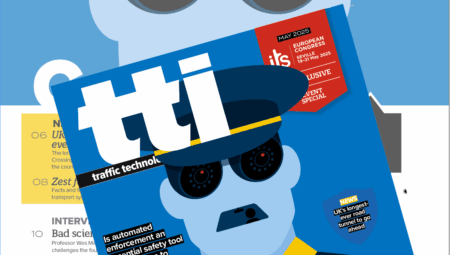The European Union-funded InterCor (Interoperable Corridors) project will start testing Cooperative Intelligent Transport Systems (C-ITS) services on the first of four international routes this week (July 3-6).
The three-year 30m (US$34.2m) InterCor project aims to enable vehicles and related road infrastructure to communicate data through cellular, ITS G5, or a combination of both networks, on road corridors running through the Netherlands, Belgium, the UK and France. The overall goal is to achieve safer, more efficient and more convenient mobility of people and goods. The project aims to connect the C-ITS initiatives of the Netherlands C-ITS Corridor (Netherlands-Germany-Austria), the French corridor defined in the SCOOP@F project, and the UK and Belgian C-ITS initiatives.
New and existing C-ITS services are being upgraded and tested along specific ‘corridors’ to ensure interoperability across borders. Over the coming months, the testing will be carried out across all four EU Member States, with the first open ‘TESTFEST’ set to take place at Dordrecht in the Netherlands this week.
The Netherlands C-ITS Corridor project, which includes the cooperation of stakeholders in Germany and Austria, will provide two C-ITS services on the Rotterdam-Frankfurt-Vienna corridor. In the Netherlands, this includes the route between Rotterdam and Germany, via Dordrecht, Breda, Tilburg, Eindhoven and Venlo, and includes the A16, A58, A2 and A67 motorways. The busy and highly-developed road network in the Netherlands provides an excellent arena to develop and implement large-scale intelligent mobility in Europe. Initially, two services will be provided, Road Works Warning and Probe Vehicle Data, with a supplementary Collision Risk Warning service also being developed in the Netherlands.
The first TESTFEST will focus on ITS-G5 services, with participants trailing state-of-the-art ITS services in real-world conditions on the A16 motorway near Dordrecht. The motorway is equipped with roadside units (RSUs) broadcasting safety-relevant information related to road works, allowing the onboard units (OBUs) installed in the participants’ cars to alert the drivers of potentially hazardous traffic situations. The main objective of the first event is to validate the international interoperability of ITS equipment from different countries and vendors, with the long-term aim of enhancing road safety in Europe.
“The findings of this TESTFEST, and other InterCor TESTFESTs, will contribute to the elaboration of harmonized deployment specifications in the C-Roads Platform,” commented Ronald Adams, InterCor project coordinator. “In this respect, InterCor will contribute to the roll-out of seamless and interoperable C-ITS services across Europe.”




